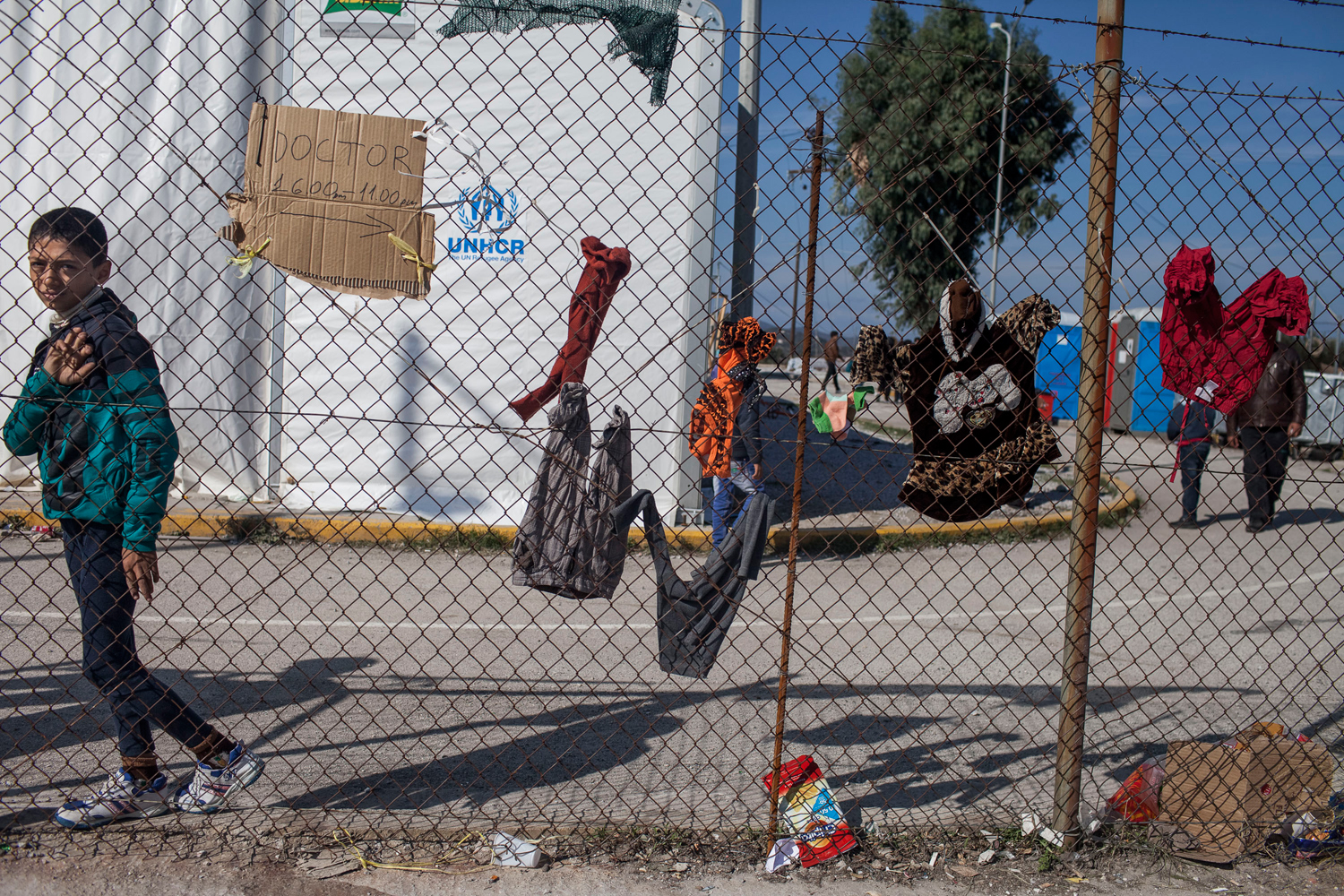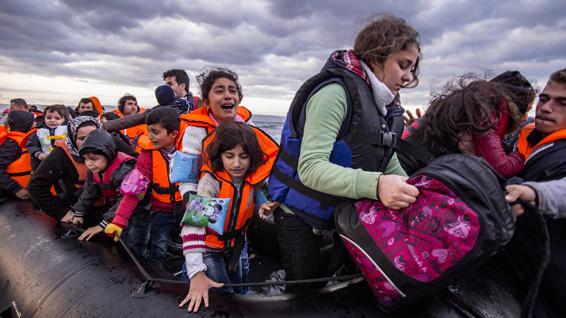Refugees and the pandemic: Covid-19 Crisis
“Refugee artisans and tailors in Kenya's #Kakuma camp have started to produce kitenge masks to show their commitment and #solidarity as part of the society. These masks will soon provide additional protection to help prevent the spread of #COVID19” - Dra Fathiaa Abdhalla ( via twitter) in the Kakuma Refugee Camp, Kenya
In March of 2016 after more than one million people – mostly refugees fleeing the Syrian civil war – crossed from the Turkish coast to Greece in the course of a year, and with that it was really important an agreement to be signed with The EU and Turkey. On 28 February of 2016, the Turkish government announced that It would no longer prevent asylum seekers and migrants from leaving Turkey, unleashing scenes of chaos and sending the Greek government scrambling to prevent people from crossing its borders."What did we do yesterday? We opened the doors," Erdoğan told the Turkish parliament on 29 February - Said The New Humanitarian. Numerous NGOs denounced both Turkey for manipulating the refugee issue and the Greek government for its heavy-handed response and abandonment of international and EU law.
According with the UNHCR statistic more than 200,000 Refugees arrived to Greece from Turkey.
Refugees around the world - facts and figures
● 25.9 million refugees globally - the highest level ever recorded
● Half of the world's refugees are children
● A third of refugees - 6.7 million people - are hosted by the world's poorest countries
 |
| Refugee Camp in Greece |
Emergence Pandemic: Covid-19 Crisis
With the appearance and rapid spread of Covid-19, the countries of the world immediately began to take measures to prevent and contain the virus for the safety of the population, taking into account the groups at risk.
According to the World Health Organization the basic protective measures against the new coronavirus are:
- “Wash your hands frequently”
- “Maintain social distancing”
- “Avoid touching eyes, nose and mouth".
Pandemic impact on Refugees
Amid the emergency for the new coronavirus in the world, refugees, displaced persons and asylum seekers are vulnerable populations. Some do not even have a place to live and others are in camps crowded with people, where neither a quarantine nor an isolation order are possible to comply.The possible spread of Covid-19 among the world's refugees and asylum seekers worries aid organizations. Thousands survive in places where sanitary conditions are nil and overcrowded conditions are high.
Doctors Without Borders (MSF) warns about the risk that it means. In the Moria refugee camp on the Greek island of Lesbos, there are 22,000 people. “Lack of hygiene in the field is a perfect situation for an outbreak. We now all know that Covid-19 is highly infectious. All health authorities say that washing hands is an act of prevention. How do you want this to happen in the Moria camp? There is no place to wash your hands, much less, several times a day, ” declares Stephan Oberreit, head of the MSF mission in Greece.
UNHCR has tried to give the best possible response,but it is known that it is difficult to reach everyone in need. UNHCR is delivering lifesaving supplies and support to refugees and displaced in countries like Bangladesh and Syria.
Based on the experience gained in previous health emergencies (Ebola, SARS and influenza), UNHCR is taking immediate action to curb the spread and respond to the COVID-19 outbreak globally. Are they:
Germany: UNHCR has sent 4.4 tonnes of humanitarian aid to Iran. Items include masks, gloves and essential drugs to support the response to COVID-19 in the country. Iran is home to nearly a million Afghan refugees and its health system is in a critical situation.
Maratane Refugee Camp, Mozambique: After Mozambique registered its first case of COVID-19 earlier this week, UNHCR teams began distributing soap and giving residents advice on how to protect themselves from the virus.
Cox’s Bazer, Bangladesh: In the world's largest refugee settlement in Bangladesh, UNHCR is giving health tips and distributing soap to reduce the risk of a COVID-19 outbreak among rohingya refugees.
Uganda: In the country that is home to more than 1.4 million refugees, UNHCR has produced a video explaining how refugees can protect themselves against COVID-19, clarifying some common myths.
Zaatari Refugee Camp, Jordan: The largest refugee camp in the region is home to almost 80,000 Syrians, and residents have come up with their own solution to ensure adequate social distance in the food distribution queue, which takes place daily.
Ukraine: In the Donetsk region, at a community center for displaced Ukrainians, volunteers are using sewing machines donated by UNHCR to produce masks for the local population.
Poland: Refugees living in the port city of Gdansk have taken the initiative to sew protective masks, a missing item in the market, as healthcare systems in the country struggle to address the growing number of patients with COVID-19.
In these difficult times, we must not forget those fleeing wars and persecution. No part of our society can be overlooked if we are to effectively face this global challenge.
In conclusion, if you want to financially support UNHCR, which is the Un Refugee Agency, you can access this link: https://donate.unhcr.org/int/coronavirus-emergency/~my-donation#_ga=2.186643369.10 94281470.1585829384-1056854664.1585829384
Article written by Millena Ferraz
Webgraphy:




Comments
Post a Comment